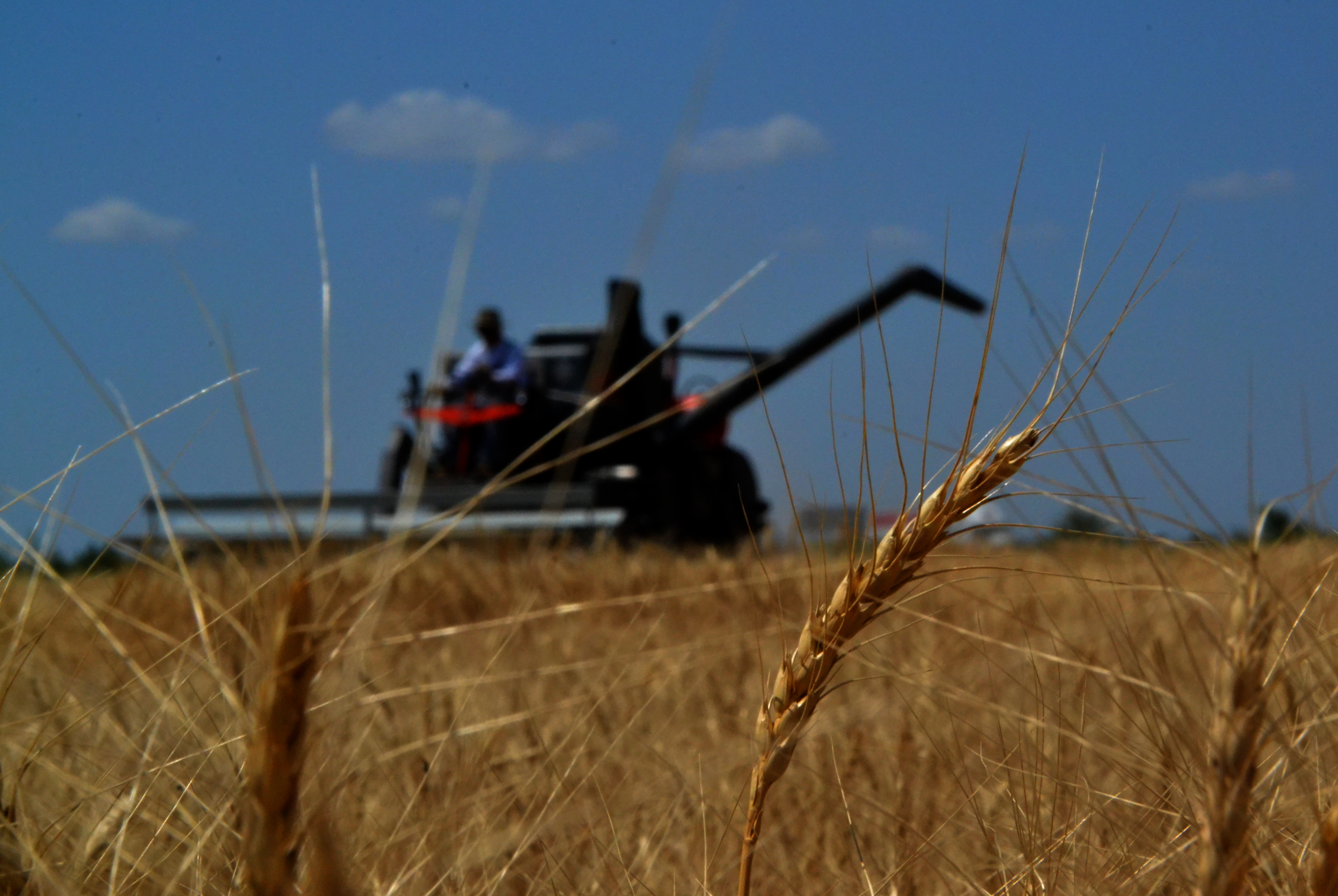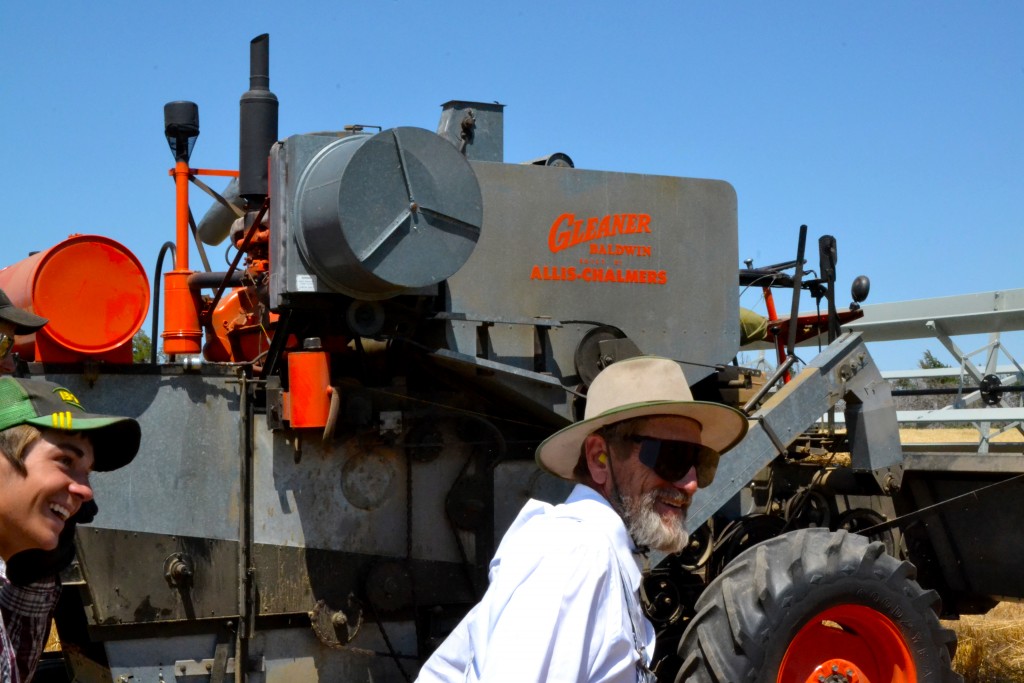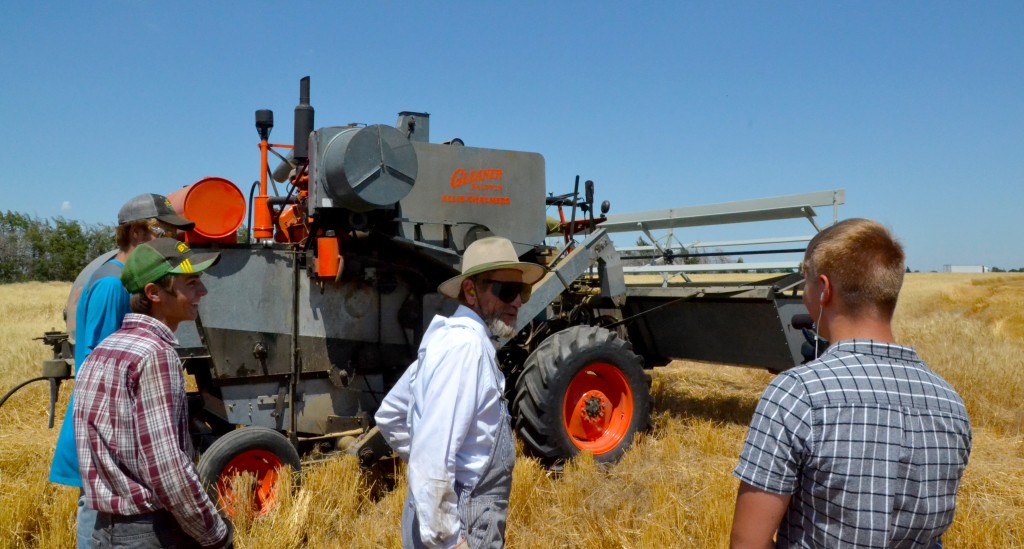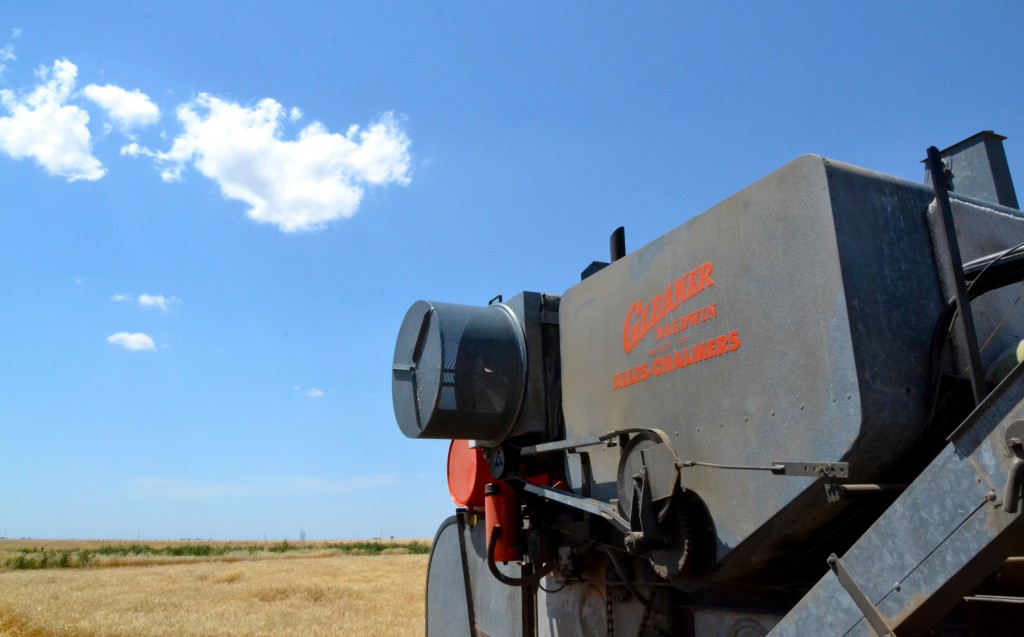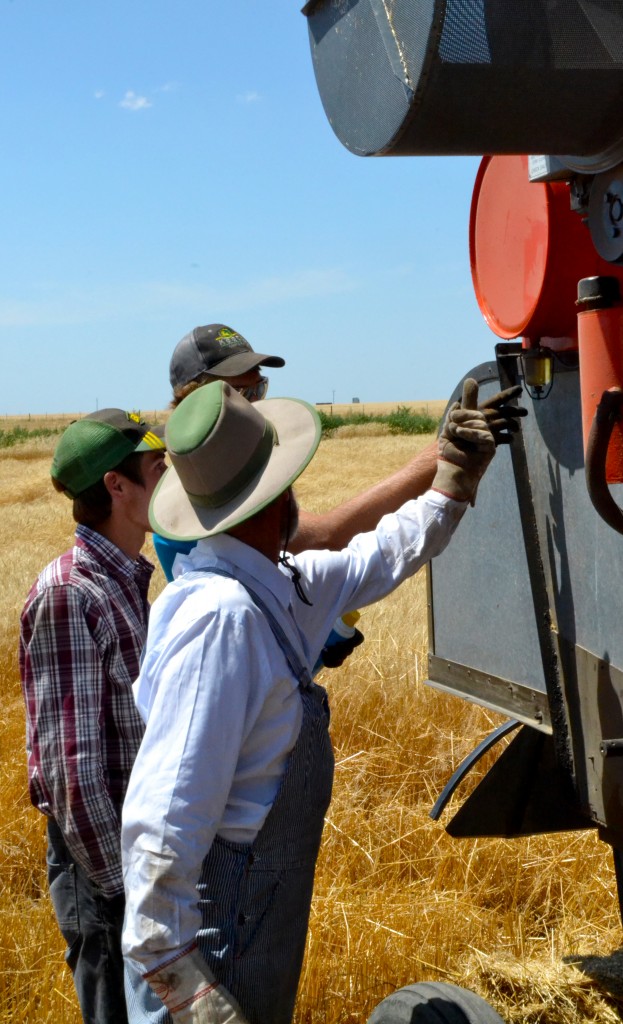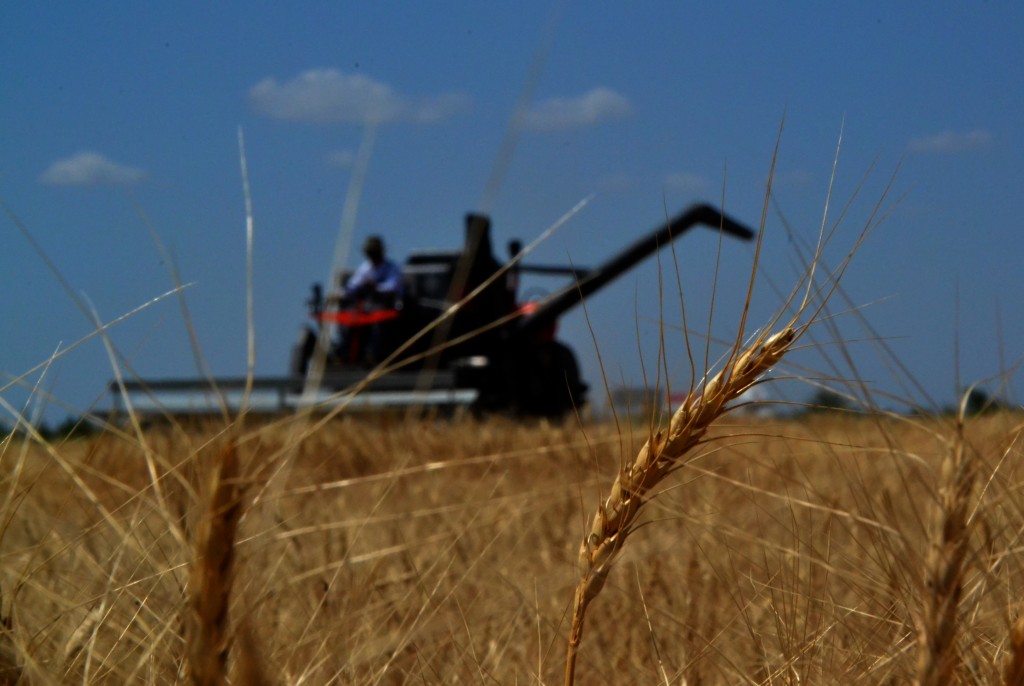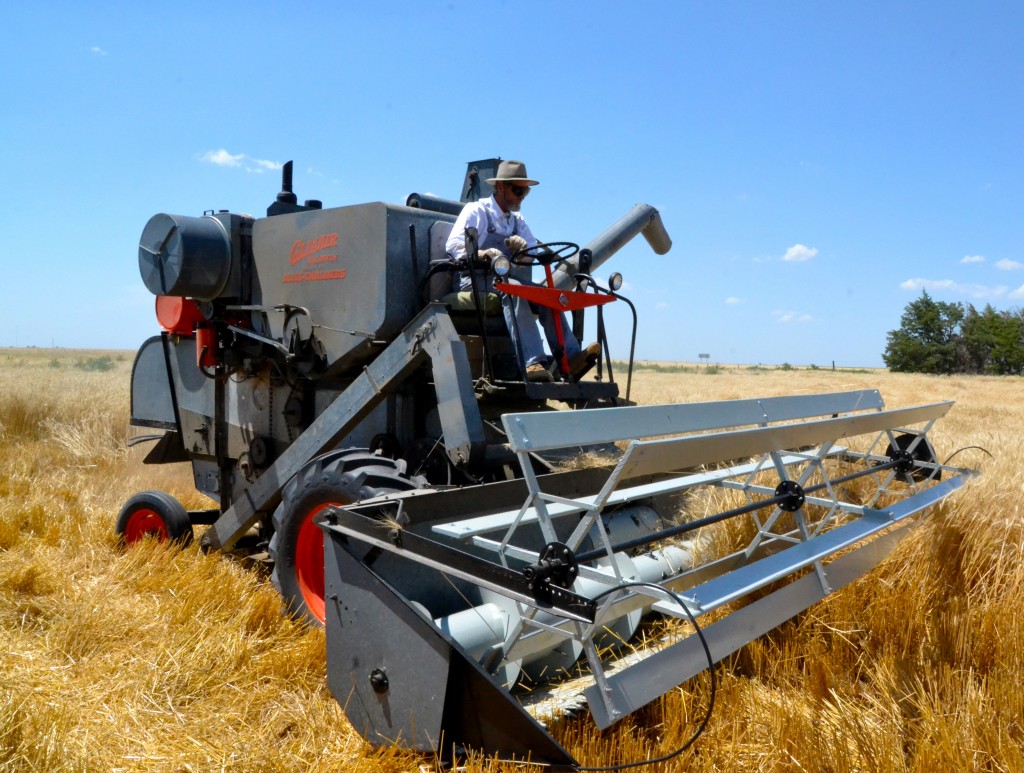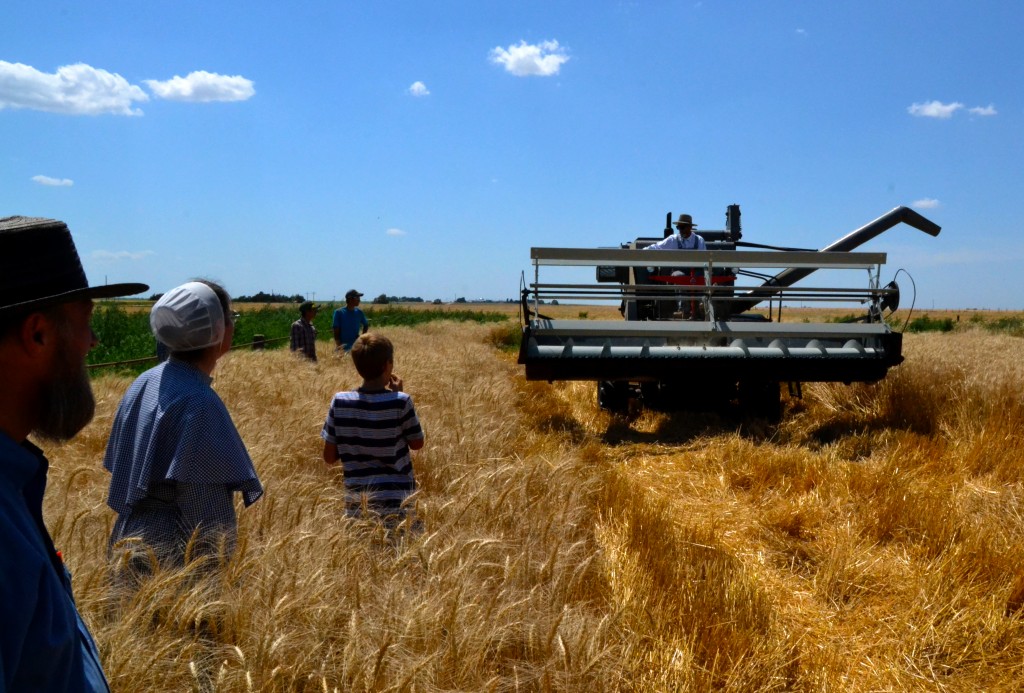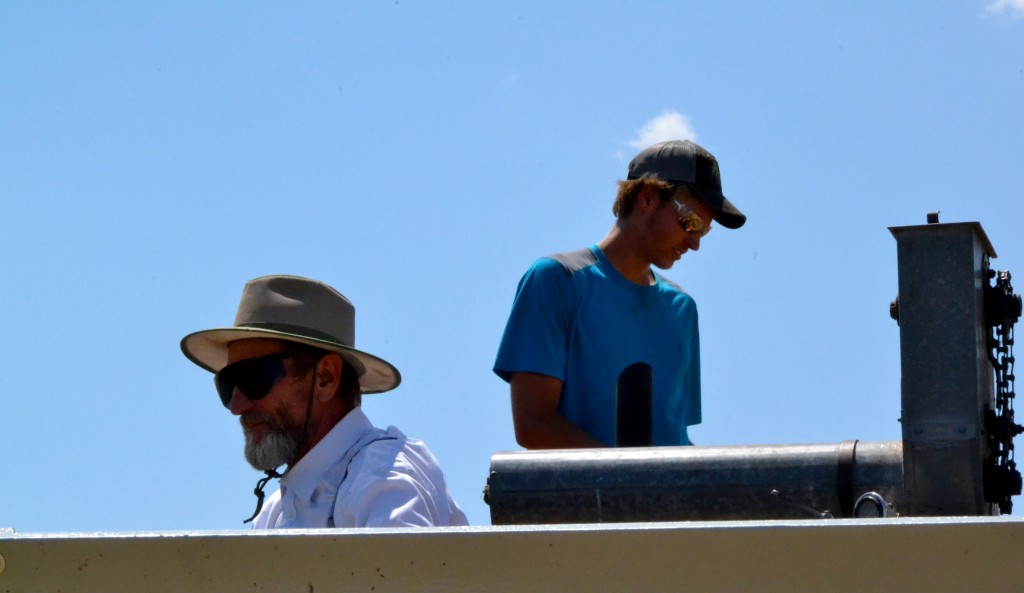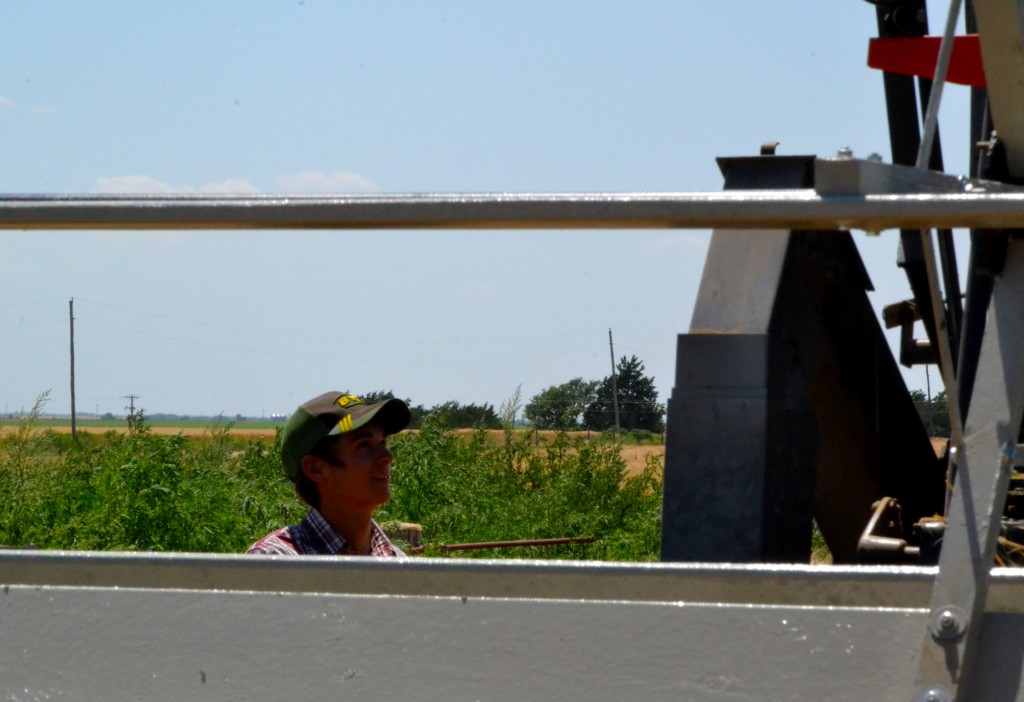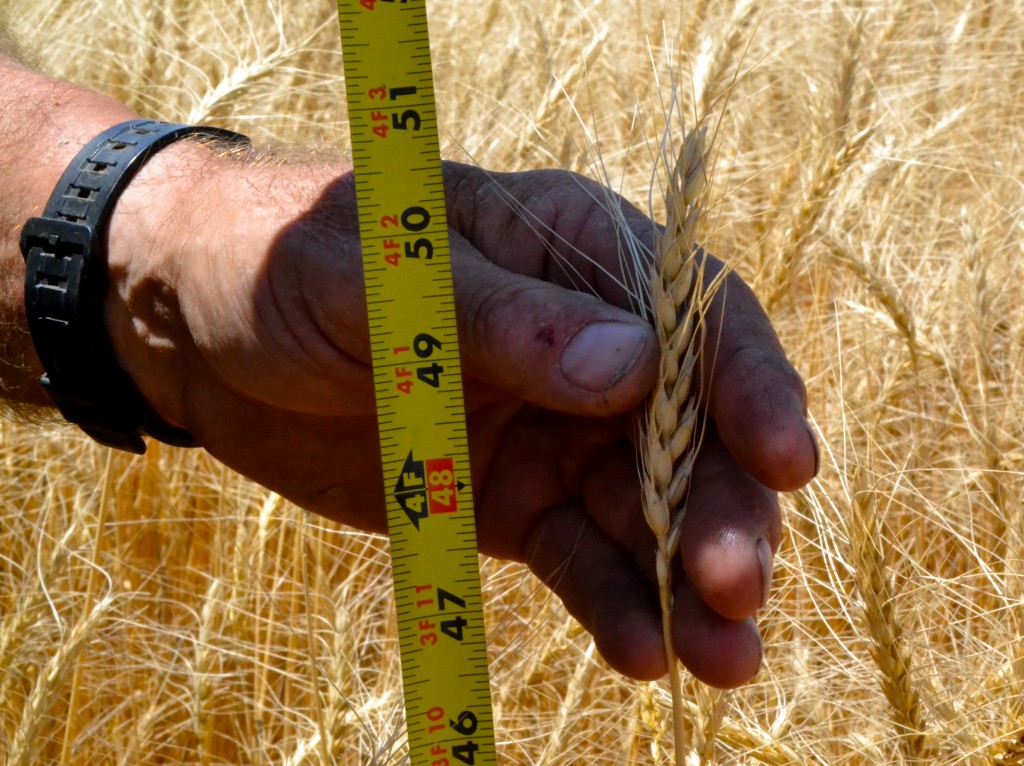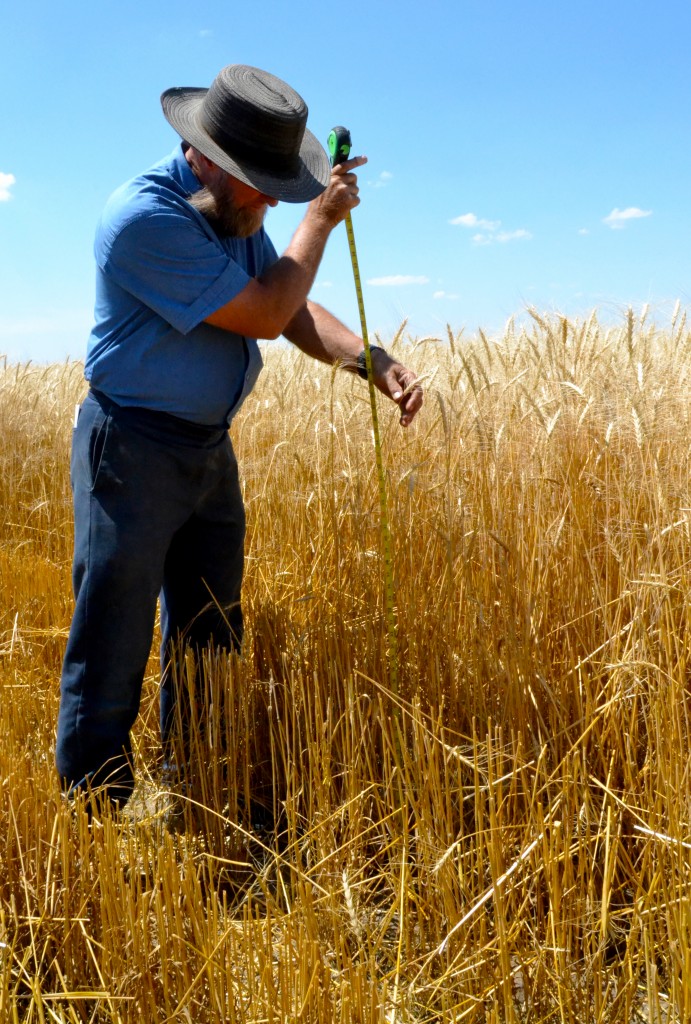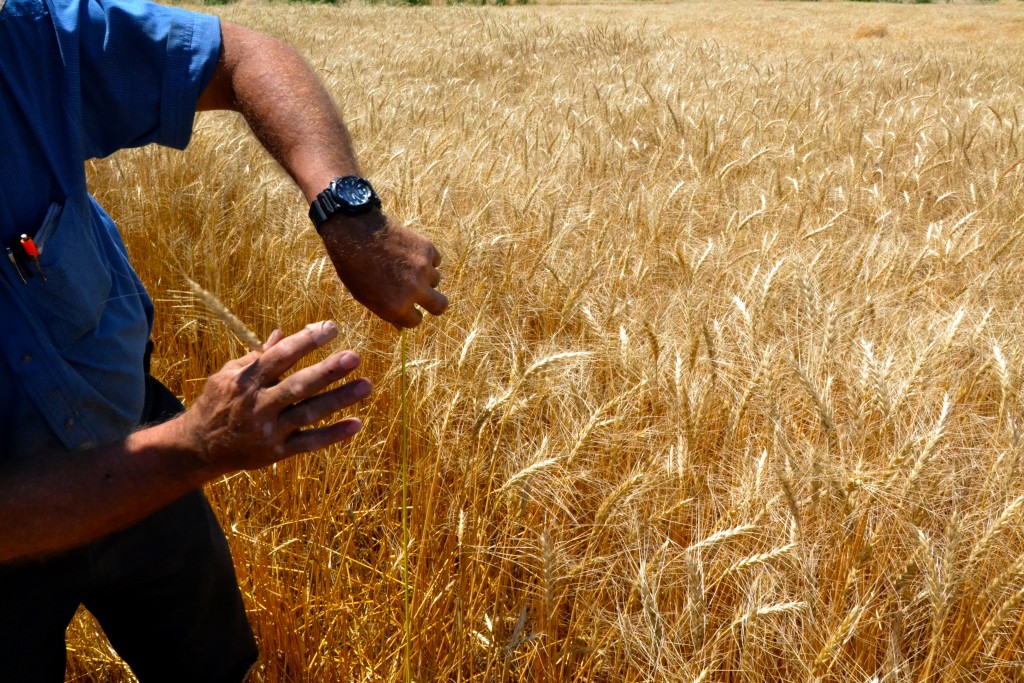Video by Cooper Slough
By JAMES BELL
Hays Post
I will admit I wasn’t sure what to expect when the story idea was presented. A western Kansas farmer cutting wheat with an antique combine during harvest isn’t my normal fare. But growing up, I worked with farmers, I’ve driven a combine, and spent days in the 100-degree heat working fields, so I thought, “Why not?” and made the call.
Harvest, as I have known it, is a hectic time, rushing to get wheat cut and delivered, especially as storms are expected to move in, so I wasn’t expecting an immediate answer. Much to my surprise, after a couple of rings a strong, but friendly, voice rang out.
“Hello, this is Roger,” came across the line, slow and deliberate.
After introductions, the man on the line, Roger Kuntz, who lives in Grainfield, explained the premise behind his endeavors.
“Why not find the simplest piece of equipment ever built and enjoy them versus buying into the high-tech world where you see the preposterous gadgetry that you’re maintaining for others?” he said. “Why not make your world fit you?”
And my interest was piqued.
A time was set and a couple of days later myself and videographer Cooper Slough made the hour drive to interview Kuntz and shoot his harvest.
The farm was easy enough to find, just a quarter mile west of the little town of Quinter, with a medium-sized red barn, and a 1949 Chevy truck parked right on the side of the road.
“Look at that,” my cameraman said as we passed the truck.
“This must be our guy,” I matter-of-factly responded.
Kuntz had told me about that truck on the phone. It had been his fathers and was still used to haul grain, 150 bushels at a time.
We were greeted almost immediately by a middle-aged woman who had the look of a farmer’s wife — Roger’s sister-in-law.
Roger wasn’t going to be immediately available, she said. The combine, the crux of the story, had apparently stopped running just before we arrived, and he was working to get it running.
We made small talk as we waited, talking about the pending storm and record wheat yields being reported in other areas of the state.
As I glanced around, I could see work being done on the combine, immediately wary that the story might require another trip, when I noticed an older man in full overalls and a hat with a full neck flap heading our way.
It was Roger Kuntz.
We talked about his equipment, his career in farming implements and why he runs his small farm in a way not seen in decades.
“The joy of being here today is the fact that we’ve come so far in getting bigger and more complex with the equipment in the 70’s until now. The joy comes from doing a small cottage farm right here at Quinter, Kansas,” he said.
After a lifetime of working with farmers, fixing implements across the world, he knows first-hand the difficulties of modern farming.
“The joy of simplicity outweighs so many other dimensions that pursuing this goal of simplicity and harmony with nature has led me to go organic with the farming. Even though I’ve walked shoulder to shoulder with the people of the ’70s who drove the Big Buds, the Versatile tractors, etc. The organic small cottage farm is a way for me to unwind and to also train apprentices,” Kuntz said.
Two of those high school students, brothers Jessie and Cody Bogart, were working on the combine – affectionately named Chitty Chitty Bang Bang – replacing the fuel pump that was giving them trouble.
Both students have plans to continue the work they are learning with Kuntz after graduation, using the skills they learned — but they aren’t the first and likely won’t be the last to work with Kuntz.
“When possible, we try to help the handicapped and put them on the assembly of these parts in our cottage shop,” Kuntz said. “We also have the foster home teenagers come out when they’re available and help do some training there.”
The sense of community and the personal touch shines through with Kuntz, something he shares with pride.
The number of people Kuntz has met is hard to imagine. For decades he traveled the world, working as a service manager at K-Tech working on Flex-King tillage equipment, now traveling with Jessie helping farmers to precisely dial in their tillage equipment.
Those service trips give Kuntz an opportunity to hear stories and reflect on the lives of the modern farmer.
“That has been a big part of going out on the service trips. I tell Jessie and Cody, ‘Let’s listen to their problems before we respond.’ ” he said. “The stories of what they would do if they could do it over again are very touching.”
Kuntz’s story starts as a young student in the area, thinking beyond the classroom.
Daydreaming in school, Kuntz said, paid off as he worked in research and development and as a service department head, putting him in a position to develop relationships with farmers and the land.
“That work entwined me even further into agriculture and farming.”
But working on high-tech machinery also created a desire to get away and practice farming without the entanglements of modern technology as farms grew larger and became more complex.
“A retreat from that life was just having this small situation here with older antique farm equipment,” he said.
“We enjoy the sweat that comes off our brow, we sleep good at night and the toil and the non-high tech world has fit us very well,” he said in a poetic tone. “We enjoyed our journies, we love the land, we plan to stay here just as long as we can.”
During the hours filming and exploring the farm, we paused, sitting around a small table enjoying cookies and a homemade energy drink. As we gathered for the break, Kuntz, Jessie, Cody and their parents were curious about what we do. We explained the in-and-outs of our own jobs, noting the stark contrast in web-based reporting to their work in the fields.
Then the fun began, the combine – once again operational – roared to life and we began capturing what we needed.
“It’s still functional. It does our job,” Kuntz said of his once-abandoned 1958 Gleaner A combine.
It was given to him, he told us, but he couldn’t just take it. He gave the farmer a donation for the machine that, without Kuntz, would likely have become scenery in a dusty field, collecting rust as an idle reflection of a time that had long since passed.
Despite the earlier hiccup, Chitty Chitty Bang Bang hummed along perfectly, albeit with a little coaxing from Kuntz. He insists singing its namesake song helps it run faster. The louder he sings, Kuntz said, the faster it goes.
As my cameraman rode shotgun, collecting shots of the harvest, he sang as they rolled along.
I wasn’t sure it helped the machine run, but the idea made me smile.
“Our little barn, our little group of machinery, and the way we farm is a real joy as these machines that are much older than the youth operating them go to the field,” he said.
The type of farming Kuntz does, organic and small, a cottage farm he calls it, isn’t without its merits in the modern world. Kuntz said he notices a growing need to pursue tillage even as others embrace new and stronger chemical treatments.
In the ’70s, the Big Buds did their job well but then came chemicals, allowing for no-till farming to be practiced, he said.
“That came in and changed agriculture.”
But weeds are adapting and tilling the ground is making a comeback, he added, giving him more opportunity to continue precision work on modern equipment.
“Tillage that can skip the ground 2 inches deep at 8 mph and really get a good job done, that where we come in,” Kuntz said. “It’s the finesse, the finesse of making a machine work so well that it pulls one or two years easier and performs right and does a good level job clear across.”
The bulk of farmers still practice no-till farming, he said, but some tillage is returning as people try to recalibrate to solve modern farming problems.
Out here, though, those problems seem distant as Kuntz practices farming that would be more familiar to someone in the ’60s than today.
“Out here, where I do not want to spray any and I need complete coverage to prevent weeds from taking over I plant a very old variety, maybe a 60-year-old variety. The varieties of Scout, Eagle, Turkey are the wheat varieties I plant and those were available in the ’60s,” he said. “It blocks the ground, shades the ground, protects the weed growth.”
Stepping into the field, it is easy to see why – the wheat is unlike any other I have ever seen and taller than I would have believed. He had told me over the phone it was chest high. He wasn’t exaggerating.
As the day wore on, watching Roger and his young apprentices’ work, it occurred to me this labor of love is likely unsustainable. I couldn’t imagine a situation in which a profit could be made from such antiquated practices.
When I asked about profit, a small smile crept across his face.
Not only is it “a great release, it can be a profitable hobby,” he said. “There will be profit after the little combine and the 930 Case has done its job. There will be a profit in the first year.”
Without a hint of malice toward other farmers, he continued.
“Being a small farmer is profitable. It works well because you can stay so focused, so concentrated on doing a good job with little, that the returns are greater per acre because you’re hovering over it like a hen over its chicks.”
As I later sat down to compile the story, desperately looking for an angle, watching the video piece come together, I found I thought more about what he said, rather than what he was doing. Throughout the day, he had shared bits of wisdom, alluding to a simpler time.
“Go simple, go small, go now,” he told us, a quote he had collected throughout his travels.
As we traveled back to Hays, I was anxious to jump back into my digital world, scrolling through the news of the day, catching up on everything I had missed, later remembering that quote as we talked about the experience we had just had. Both the oddness of it, but also the familiarity and the kindness of strangers that is increasingly infrequent.
Because of that unexpected hospitality, I felt compelled to grant a request he made as we parted ways. He asked to share a quote by Sterling Hayden that is important to him and without hesitation I share it now.
“In the worship of security we fling our lives beneath the wheels of routine – and before we know it our lives are gone. What does a man need – really need? A few pounds of food each day, heat and shelter six feet to lie down in – and some form of working activity that will yield a sense of accomplishment. That’s all – in the material sense. And we know it. But we are brainwashed by our economic system until we end up in a tomb beneath a pyramid of time payments, mortgages, preposterous gadgetry and playthings that divert our attention from the sheer idiocy of the charade. The years thunder by. The dreams of youth grow dim where they lie caked on the shelves of patience. Before we know it, the tomb is sealed. Jessica Mitford writes about the American way of death, but the American way of death isn’t the burial ritual (silly as that is), but the way the average man lives. When you consider the beauty there is in the world, the rapture that can be known, the honest relationships, the excitement and exaltation there is for the taking – the real things to look at and feel and read…Where, then, lies the answer? In choice. Which shall it be: bankruptcy of purse or bankruptcy of life?”
A few days later, I traveled near Roger’s 80-acre farm and saw him riding high on his combine set against a bright blue sky. I smiled and began singing in my head “Chitty Chitty bang bang, Chitty Chitty bang bang, we love you,” imagining he was as well.
I hope it helped.
James Bell is a reporter at Hays Post.
